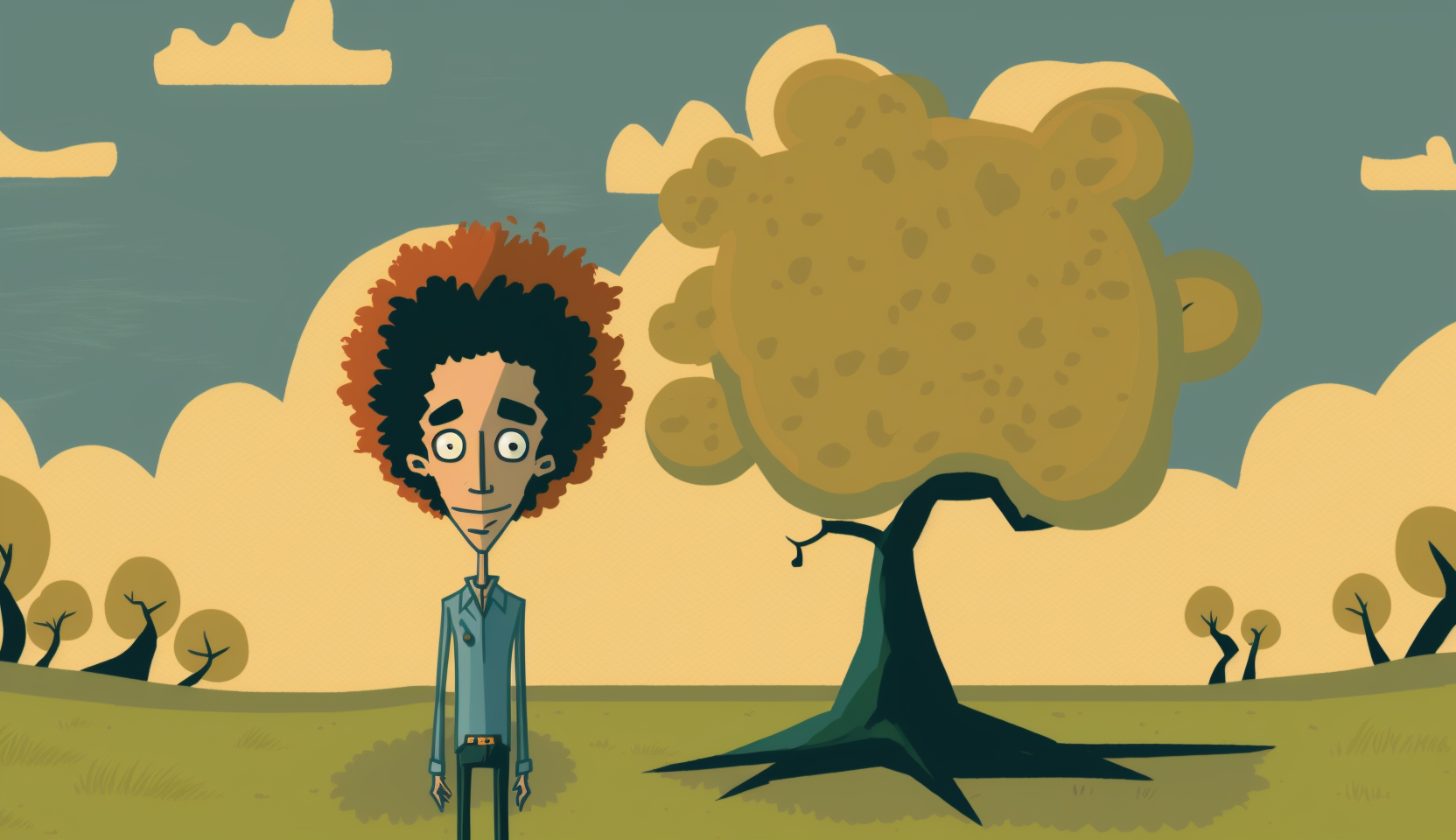Want To Fail Like Malcolm Gladwell? Be A Tree.
Malcolm Gladwell needs no introduction. Besides his books, he has a podcast, Revisionist History, which he runs through his podcasting company Pushkin Industries.
But something struck me about a recent episode of his: I Love You Waymo.
People didn’t like it.
The top Reddit comment of the episode:
I'm sure Malcolm and whoever is managing the show is smart enough to disclose when they're being sponsored, but this really felt like an ad
This wasn’t the exception. There was such an overall dislike of this episode that a future episode of Revisionist History spent a good deal of time talking about it.
So what happened? Even more importantly, how can we avoid faltering in our own creative endeavors?
A few weeks ago, my wife, 8-year-old, and I took a trip to the Museum of Science and Industry here in Chicago. Our membership was expiring, and we wanted to squeeze in all the membership benefits we could. So we got free tickets to the IMAX show: Michael Jordan to the Max. It’s a 45-minute documentary about Jordan's last season and championship with the Bulls.
Spoiler alert: You already know how this movie ends. The Bulls win their 6th championship against the Utah Jazz with a dramatic but "of course" moment of Jordan making the final winning shot at the end of Game 6.
But what I didn’t internalize as a kid when these games took place was that this final championship looked like it was going to go the other way.
Jordan (and the whole team) looked exhausted. The Jazz looked fresh. The Jazz had also beaten the Bulls both times they faced up during the regular season. The Jazz had home court advantage and had won Game 1 and Game 5. And both Game 6 AND 7 were in Utah.
So it should be no shock that Game 6 looked like it was another win for the Jazz. The Bulls were down by 3 points with 41 seconds left.
At the end of the game, the Bulls’ coach, Phil Jackson, takes a timeout. Is Phil going to change things up? Draw up a surprise play to deal with the fact that this game looks like it’s a loss?
With a couple of minutes to play, I called a timeout, and (Michael) said ‘We’re gonna win this one.’ And I said, ‘I know.’
Jordan’s edge was his ability to completely embrace the current moment. Even more so, to be comfortable (almost forgetful) of the mistakes leading up to this point.
Most of us are familiar with Jordan’s quote: “I’ve missed more than 9,000 shots in my career.”
But I like this one maybe a little bit better:
I wasn’t afraid to fail with it. Once I began to understand that, I became a master of the game of basketball.
He wasn’t afraid to fail.
This might sound like blind confidence, but what I think it really points to is his ability to trust the process. Jordan had done all he could to train for each moment he’s in. All he can do now is show up and produce what he’s prepared for. No amount of fretting over the last missed shot (his fourth-quarter performance wasn’t great in this game) would help him now.
Just show up. Take the shot. Let the practice and preparation and odds play out.
Now, of course, they don’t all succeed. That’s the point.
You have to be comfortable with the fact that your percentage of shots going in won’t be 100%. It's not even close. His percentage of shots made in the 1998 finals was actually 42.7%. More than half missed. His "end of game," "clutch" percentage was even lower. Now, "lower" still means "one of the best" percentages in the game. But still, more than half of these attempts at success failed.
I was listening to a recent podcast with Steven Levitt of Freakonomics fame, and a listener asked how Steven handles rejection. Steven shares that two thirds of his research articles are rejected from journals and publications. That's ⅔ of your work that you and your team have spent weeks, months, or even years on. Rejected. Not good enough. No thank you.
Levitt has clearly gotten good at failing.
Ok, so Jordan and Levitt have gotten good at failing. They can shake it off. Easier said than done.
That's where Gladwell comes in.
It also dawns on me that not only does Gladwell seem comfortable with failing, even lampooning his own work on a future podcast episode.
But Gladwell and Jordan share a feature in their process.
They work in seasons.
They're committed to producing from Day 1 to Day whatever. Then they can take a break.
We would take those off-seasons and train like no one has ever trained before, coming back with a better fadeaway or accurate free throw. And I imagine Gladwell takes some time to reflect on what worked and what people scoffed at.
But in the moment, they produce. During the season, they create. Regularly. Posting one episode a week. Showing up every other day for another basketball game. Some bangers. Some total misses.
You don't sit around debating whether the criticism was so bad you don’t participate again. You just do. You're committed. For a while, at least. Then take a break.
And I think that's a hack more people need to give themselves. Decide what your season is in whatever you do. A period of time where you're going to just produce. Not fret about the ⅔ of the work you wrote or launched or published that completely clanked off the rim. Trust that you know stuff and it's worth it. Sure, make small tactical changes here and there. But the big, hairy, strategic questions? Sit on them for the off-season.
P.S. Want to work together? We’re hiring. Come say hi!

